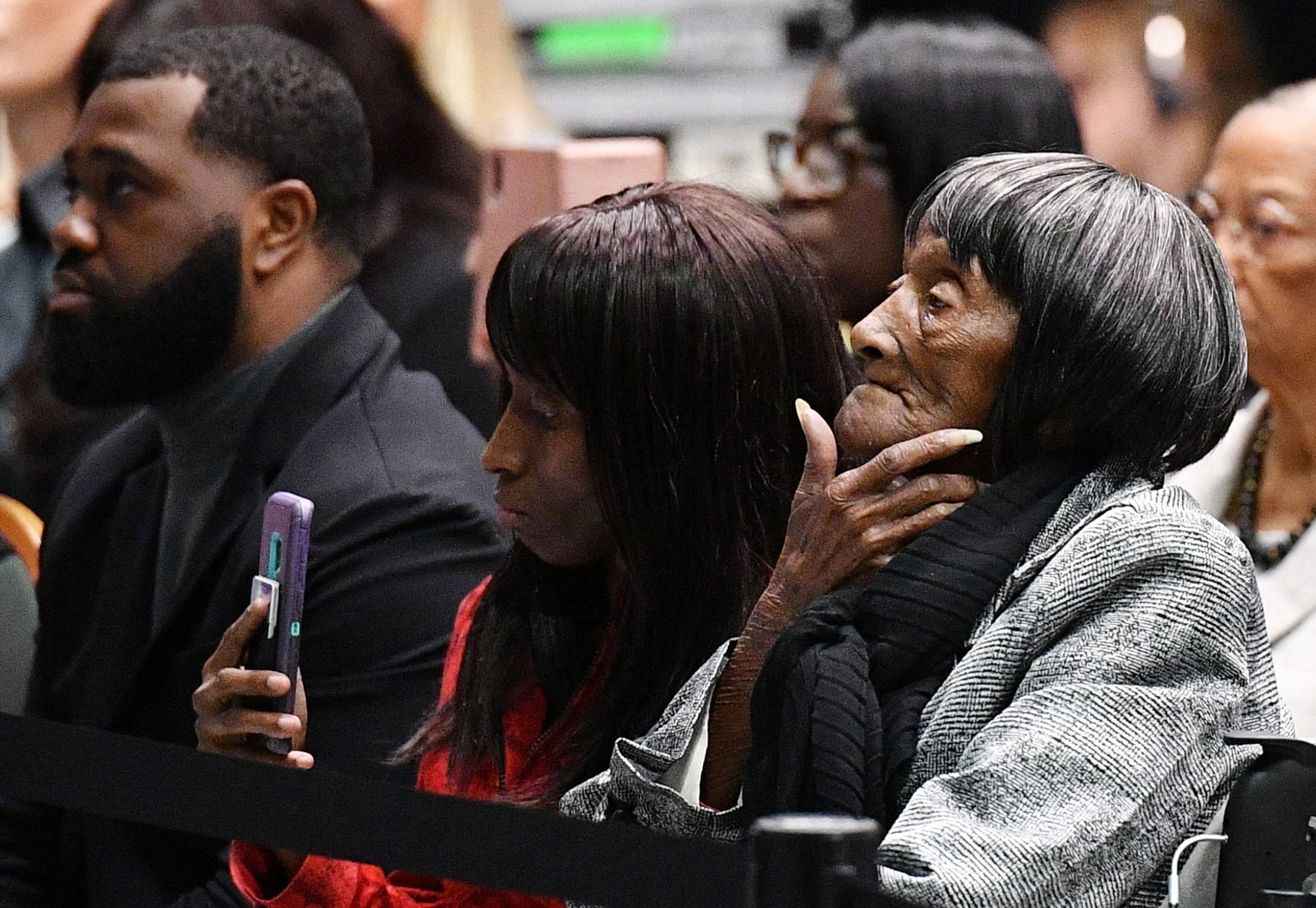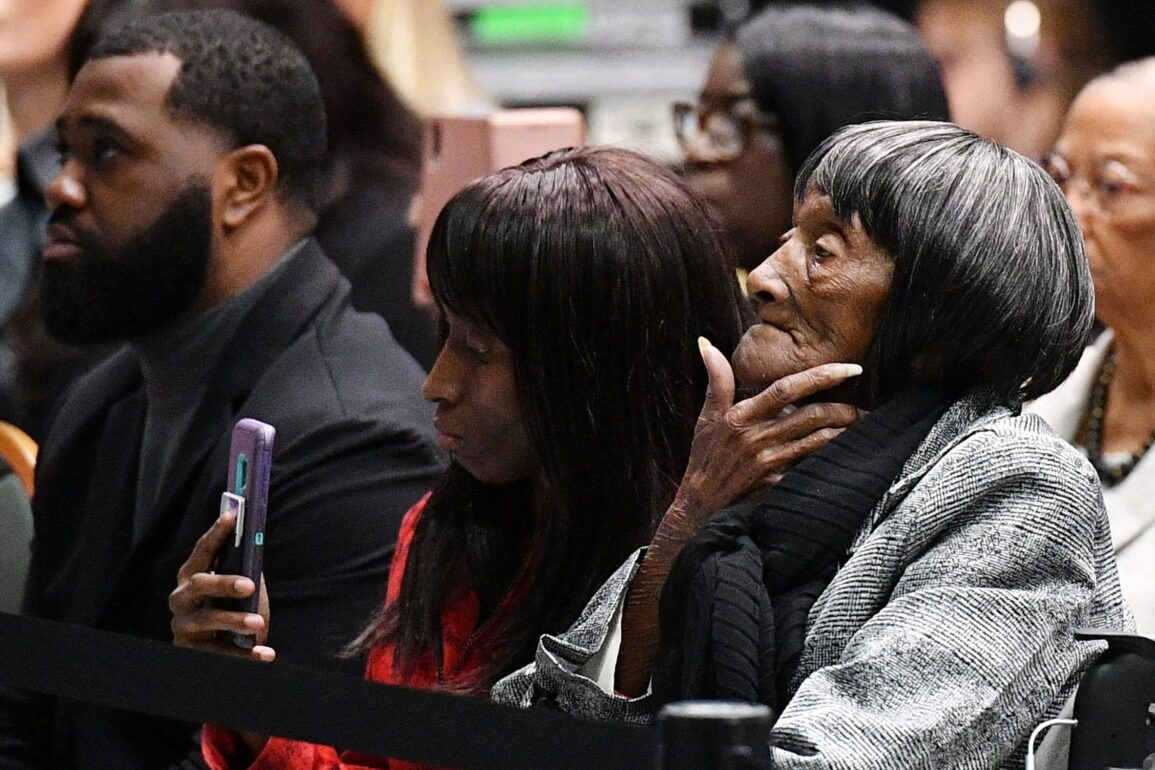
“If we want to be on the right side of history, then America — the city of Tulsa — needs to make it right,” Tiffany Crutcher, a native of the Oklahoma city that was the site of a deadly race massacre more than a century ago, recently told Capital B.
But things won’t be made right anytime soon. The remaining survivors of the 1921 assault suffered another slap in the face on Wednesday.
The Oklahoma Supreme Court dismissed a lawsuit from the survivors of the attack on the Greenwood district known as “Black Wall Street” that killed as many as 300 people and plunged the once-thriving area into a state of disrepair. Upholding a district court ruling from last July, the justices decided 8–1 that the plaintiffs aren’t eligible for reparations under the public nuisance statute.
Wednesday’s news devastated and infuriated the survivors and their legal team, who’ve been locked in this battle for years. They have promised to file a petition for rehearing, asking that the court reconsider its decision in the case, which is likely the survivors’ final opportunity to win restitution.
“The massacre happened 103 years ago, but it remains a vivid memory of [Lessie Benningfield Randle and Viola Ford Fletcher], who as young girls saw their community destroyed in the worst act of domestic terrorism in U.S. history,” the legal team explained in a statement. “As Mother Fletcher celebrated her 110th birthday last month and Mother Randle will celebrate the same birthday later this year, time is of the essence for this investigation to begin.”
Fletcher’s younger brother, Hughes Van Ellis, died of cancer last October at 102 years old. In 2021, on the centennial of the attack, the survivor and World War II veteran testified to Congress, declaring that he didn’t want to “leave this earth” without obtaining justice.
Read More: Inside the Battle to Preserve ‘Black Wall Street’
Oklahoma isn’t the only state where reparations have become a contested political issue. The country’s appetite for grappling with racial inequality seems to have dwindled in the years since George Floyd’s murder in 2020.
Just last month, a conservative activist group called Judicial Watch filed a lawsuit challenging a first-of-its-kind government program providing cash reparations to Black residents of Evanston, Illinois. The initiative was established in 2021 in order to address racist housing practices that were in place from 1919 to 1969.
Judicial Watch claims that the program violates the 14th Amendment’s Equal Protection Clause because it supposedly discriminates against white residents. Its argument reflects a far wider trend: Since the U.S. Supreme Court gutted affirmative action in higher education last June, conservative actors have insisted that the high court’s decision should apply more broadly.
And in April, Tennessee’s Republican-led House of Representatives tabled a bill that would ban local governments from studying or funding reparations, essentially spiking the GOP-backed proposal for the rest of the year. A companion bill had already passed the Tennessee Senate, which Republicans also control.
Rep. Justin J. Pearson, who along with his Democratic colleague Rep. Justin Jones was briefly expelled from the Tennessee House last April, told Capital B earlier this year that the momentum behind the state’s anti-reparations bill wasn’t surprising.
“This is the legislating of white supremacy and racism that we deal with here,” he said, highlighting that the legislation was a “terrible” yet also “accurate” reflection of Tennessee and its politics. “The push by the Republican Party in our state against reparations is really an effort to live in an ahistorical way — to not understand the past and its ramifications for the present day.”
The Rev. Earle J. Fisher, an advocate and a longtime resident of Memphis, Tennessee, who organized a petition against the bill, expressed a similar sentiment.
He told Capital B that “when you are passing legislation to stop people from studying something, as a legislative body, it communicates that not only are you committed to injustice and inequity, but you are anti-truth.”
As heartbreaking as Wednesday’s decision was, the survivors and their legal team are determined to exhaust all possible avenues in their pursuit of justice.
No one has ever been held accountable for the massacre, and there are calls for the U.S. Department of Justice to intervene and open an investigation under the Emmett Till Unsolved Civil Rights Crime Act of 2007.
“The federal government has a duty, while my clients are still alive,” Damario Solomon-Simmons, an attorney for the survivors, told Capital B last year, “to come in and use its awesome powers to give this community some form of relief.”


